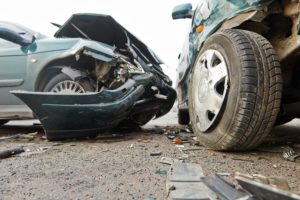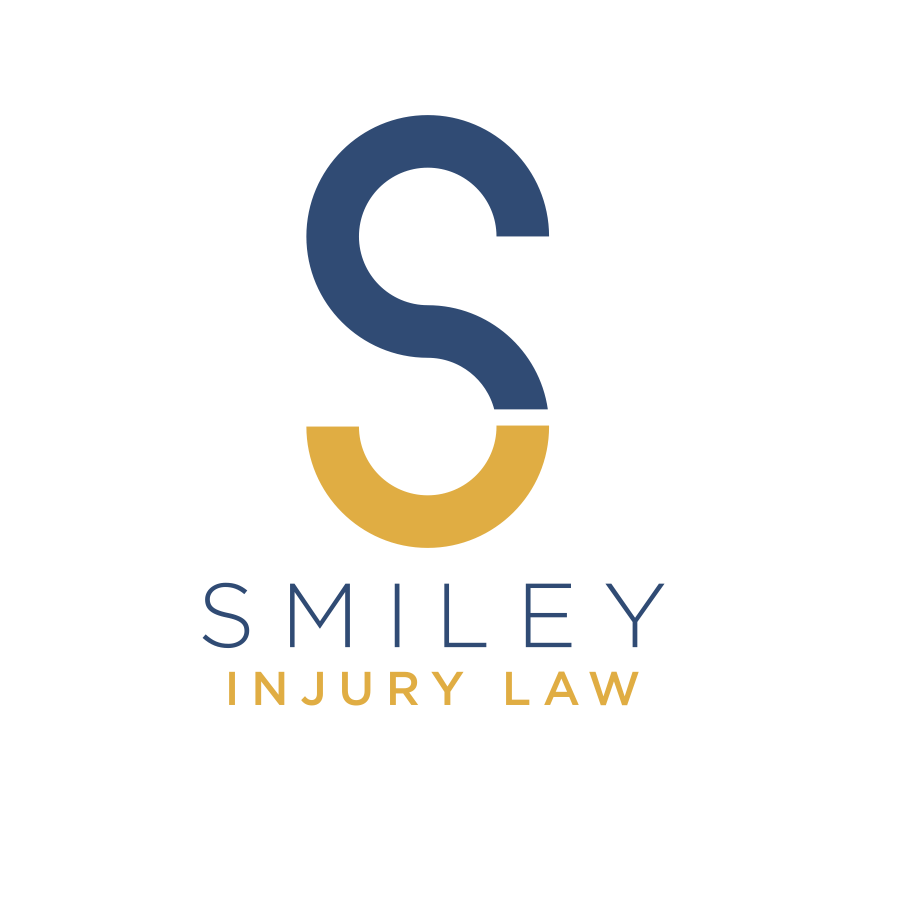Who Pays for Rear-End Collisions?
Rear-end collisions can damage both vehicles involved and injure their occupants. If you recently found yourself in this unfortunate situation, you may wonder who needs to pay for the financial consequences. In any case, your chances of making a successful claim rise exponentially with a car accident lawyer’s help.
In general, the driver who rear-ends another vehicle is often at fault. While liability may fall on the leading driver, in general, the trailing driver has a duty of care to maintain a safe distance. When drivers forsake the duty of care, they become liable for their actions.
If you suffered a rear-end collision, seek legal advice from an experienced car accident attorney. Contacting a rear-end collision lawyer near you lets you understand your rights, options, and potential for compensatory damages. Don’t let the aftermath of a rear-end collision overwhelm you — seek assistance from an attorney to protect your interests.
Why You Must Consult a Car Accident Lawyer
While the at-fault driver in a rear-end collision typically must pay damages, here are answers to common questions that indicate you need to seek legal advice:
- Do You Have Injuries From The Accident? If you sustained injuries, consult a lawyer who handles car accident cases to ensure you receive proper compensation for your medical expenses and pain and suffering.
- Do You Believe The Other Driver Was At Fault? If you believe the other driver’s negligence caused the rear-end collision, a lawyer can gather evidence to support your claim and hold the responsible party accountable.
- Did An Insurer Make A Quick Settlement Offer? Insurance companies may try to settle a claim quickly to avoid paying out a fair amount. A lawyer can determine if the settlement offer is fair and negotiate for a better outcome.
- Did The Liable Driver Offer To Settle The Matter Privately Without Involving Insurance? If the other driver tries to avoid involving their insurance company, that may raise a red flag.
- Has Any Claims Adjuster Requested A Statement Or Medical Records? Insurance adjusters may request a recorded statement or your medical records as part of their investigation. Speaking to a lawyer before providing any statements or records can protect your rights and ensure you do not say anything that may harm your case.
- Have You Incurred Or Do You Expect Any Financial Losses? If the rear-end collision resulted in financial losses, such as medical bills, lost earnings, or property damage, working alongside a lawyer can help you recover these expenses.
- Has An Insurance Company Contacted You? If insurance companies try to downplay your claim or deny responsibility, a car accident lawyer can level the playing field and ensure you are treated fairly.
Different Causes of Rear-End Collisions
All car drivers have a duty of care to other drivers, meaning they must operate their vehicles responsibly and avoid behaviors that may cause accidents.
Unfortunately, many drivers fail to uphold this duty, resulting in accidents.
Here are some of the different causes of rear-end collisions.
Distracted Driving
One of the leading causes of rear-end collisions is distracted driving. Texting, talking on the phone, eating, or interacting with passengers — or any activity that diverts a driver’s attention from the road — can lead to a rear-end collision.
Speeding
Driving above the speed limit or too fast for current road conditions increases the likelihood of a rear-end collision. Speeding reduces the driver’s ability to stop in time to avoid a collision, especially if the vehicle in front suddenly decelerates.
Tailgating
Following another vehicle too closely is known as tailgating and is a common cause of rear-end collisions. If the front vehicle slows down or stops suddenly, the driver behind may not have enough time to react and stop in time.
Reckless Driving
Engaging in aggressive driving behaviors such as weaving through traffic, changing lanes abruptly, or running red lights can increase the risk of rear-end collisions.
Poor Weather Conditions
Rain, snow, ice, and fog can create slippery road conditions, reducing the driver’s ability to stop in time and increasing the likelihood of a rear-end collision.
Faulty Lights
If a driver’s brake lights are not working properly, the driver behind may not have enough time to realize that the vehicle in front is stopping, leading to a rear-end collision.
Reversing and Brake Checking
If the front driver suddenly reverses without giving the rear driver enough time to react, or brake-check aggressively, they may cause the rear driver to collide with them. That would make the front driver liable.
What Other Factors Might Cause a Rear-End Collision?

Other factors may cause a rear-end collision. The variables that increase the chances of encountering one may be entirely out of a driver’s control. In any case, document as much of the accident scene as possible.
Surroundings
Naturally, cities and more dense urban settings attract higher volumes of drivers and more proximity to danger. You will likely encounter a rear-end collision with more road users nearby.
Weather
Considering how inclement weather affects car performance and safety, weather can also contribute to rear-end collisions. Winter weather or heavy rain might cause cars to skid.
Time of Day
The post-work evening rush creates more tension because motorists have lower patience thresholds, contributing to more car accidents.
Injuries Resulting from Rear-End Collisions
Even at low speeds, occupants can experience significant harm. Some common injuries resulting from rear-end collisions include:
Whiplash
Whiplash occurs when the head jolts back and forth rapidly. It can lead to neck pain, stiffness, headaches, and even cognitive issues.
Back Injuries
The force of impact in a rear-end collision can cause severe back injuries such as herniated discs, spinal fractures, and nerve damage. These injuries may require lengthy and expensive rehabilitation.
Head Injuries
The sudden jolt of a rear-end collision can cause head injuries, ranging from concussions to traumatic brain injuries. Head injuries can have long-lasting effects on a person’s cognitive abilities and daily functioning.
Facial Injuries
The impact of a rear-end collision can result in facial fractures, lacerations, and dental injuries. These injuries often require reconstructive surgeries and ongoing dental treatments.
Financial Consequences and Compensation
A rear-end collision can result in catastrophic injuries and subsequent financial losses. The liability for these losses rests with the at-fault driver.
When it comes to seeking compensation for the damages you have suffered, one needs to understand the different types of compensatory damages available.
Here are three categories of damages:
Economic Damages
The clue is in the title with this category, which refers to all financially measurable losses incurred from the rear-end collision.
- Medical Expenses: These damages include the cost of emergency medical care, hospital stays, surgeries, medications, and ongoing rehabilitation. Keep track of all medical expenses related to the rear-end collision.
- Lost Income and Future Earnings: If your injuries prevent you from working, you may be entitled to compensation for lost earnings. This category includes both the income you lost while recovering and any potential future earnings you may miss out on due to long-term disabilities.
- Property Damage: If your vehicle was damaged in the rear-end collision, you can seek compensation for the repairs or the market value of the vehicle if it is considered a total loss.
Non-Economic Damages
Some losses cannot be measured economically, though the damage might be far worse than any financial setbacks. Non-economic damages revolve around any impact the collision or subsequent injuries had on your everyday life quality.
Here are some which may apply to injuries caused by a rear-end collision.
- Pain and Suffering: This category includes compensation for physical pain, emotional distress, mental anguish, and loss of enjoyment of life caused by the rear-end collision and its aftermath.
- Scarring or Disfigurement: If the rear-end collision resulted in scarring or disfigurement, you may be eligible for compensation for the physical and emotional impact of these injuries.
- Emotional Trauma: Rear-end collisions can also lead to psychological trauma, such as post-traumatic stress disorder (PTSD), anxiety, and depression. These injuries may require therapy and other mental health treatments.
Parties Involved in a Rear-End Collision Claim
Some rear-end collisions may affect or be the fault of more than one motorist.
- A Motorist: The driver who caused the rear-end collision by failing to exercise reasonable care.
- A Government Entity: If the offending driver was working in a government capacity, the government entity may be liable. There are shorter statutes of limitation for suing government entities, so action must be swift.
- A Private Company: The offending driver might not have owned the vehicle. The vehicle’s poor maintenance or the driver’s condition might cause a rear-end collision.
- A Manufacturer: A vehicle manufacturer might be responsible for the collision. For example, a new car with faulty brakes indicates poor design or safety shortcomings.
There are several reasons to launch a lawsuit against the at-fault driver.
Put simply, any of the following will bring a likely case for compensation.
- Negligence: If the at-fault driver was negligent in their duty of care and caused the rear-end collision, they can be held legally liable for the damages.
- Drunk Driving: If a driver violates criminal laws by driving under the influence, they should be fully responsible under the principles of negligence per se.
- Aggressive Driving: If the at-fault driver was engaging in aggressive driving behaviors, they should be held accountable for the rear-end collision, also based on negligence per se if they are convicted of a violation.
The Importance of Hiring a Car Accident Attorney
If you have been rear-ended, the most logical step is to book a consultation with a car accident attorney who understands the dynamics of a personal injury and property damage claim.
Insurance companies often try to avoid paying out a fair settlement and may employ various tactics to undermine your claim.
An experienced car accident attorney knows these tactics and can counter them effectively, ensuring your rights are protected and you receive fair compensation.
Car accident attorneys understand the law and can take on all your case’s responsibilities. They will gather evidence, interview witnesses, negotiate with insurance companies, and build a strong case for maximum compensation.
By having a car accident attorney handle the legal aspects of your claim, you can focus on your recovery and healing after the harrowing experience of a rear-end collision.
While every car accident claim is unique, the severity of the accident and the laws of the state where it took place can influence the outcome or procedure of the case.
A car accident attorney will guide you through this process, ensuring that every legal step is taken to protect your interests.
Contingency Fees Make the Difference
Fears about money should not prevent you from seeking the representation you need. Most car accident attorneys work on a contingency basis, meaning they only get paid if they win your case. This arrangement eliminates the financial burden and allows you to pursue the compensation you deserve without upfront costs.
If you have been hit in a rear-end collision, seek legal guidance from a car accident attorney, who will fight on your behalf, help you overcome all the hurdles in your way, and ensure that you receive the compensation your losses demand.
Take the first step toward justice by contacting a car accident attorney today.





